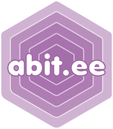Eclipse Foundation officially introduced Jakarta EE 11 — a new version of the enterprise Java development platform. The update includes Java 21 support, improved performance, new APIs, and enhanced capabilities for modern cloud applications.

G. Ostrov
Eclipse Foundation announced the release of Jakarta EE 11, marking a new milestone in enterprise Java platform development. This update represents a significant step forward in enterprise development, offering developers modern tools and capabilities for creating scalable applications.
The primary innovation in Jakarta EE 11 is full Java 21 support, including new language features and performance improvements. The platform now leverages Virtual Threads introduced in Java 21, significantly improving application scalability when handling large numbers of concurrent connections. This is particularly important for microservices architectures and high-load web applications.
Significant changes affected Jakarta RESTful Web Services (JAX-RS), where asynchronous request processing support was improved and new capabilities for working with reactive data streams were added. Jakarta JSON Processing and Jakarta JSON Binding received performance optimizations that accelerate JSON data serialization and deserialization by 15-20% compared to the previous version.
Jakarta Contexts and Dependency Injection (CDI) was updated for better cloud platform integration. New annotations simplify component lifecycle configuration in containers, which is critically important for deployment in Kubernetes and other orchestrators. Developers can now more flexibly manage dependencies in microservices architecture.
Jakarta Security expanded authentication and authorization capabilities by adding built-in OAuth 2.1 and OpenID Connect support. This significantly simplifies integration with modern identity systems and provides higher security levels for enterprise applications. New APIs enable easy implementation of single sign-on (SSO) and federated authentication.
Jakarta Persistence (JPA) received query performance improvements and more efficient handling of large datasets. New second-level caching capabilities and lazy loading optimization substantially reduce database load. Support for new data types was added, and compatibility with NoSQL solutions was improved.
An important aspect of Jakarta EE 11 is improved containerization and cloud deployment support. New configuration profiles are optimized for Docker container operations, simplifying cloud-native application creation. Application startup time was reduced by 30%, and memory consumption was optimized for resource-constrained environments.
Jakarta EE 11 also includes application observability improvements. Integration with MicroProfile Metrics and OpenTelemetry provides more detailed performance monitoring and simplifies debugging in production environments. New logging and tracing capabilities help quickly identify and resolve issues in distributed systems.
Backward compatibility remains a priority for Jakarta EE developers. Most applications built on Jakarta EE 10 can be migrated to the new version with minimal changes. Detailed migration guides and tools for automating the upgrade process are provided.
For additional information and downloads, visit the official Jakarta EE website.
If you encounter any issues, contact us, we'll help quickly and efficiently!




